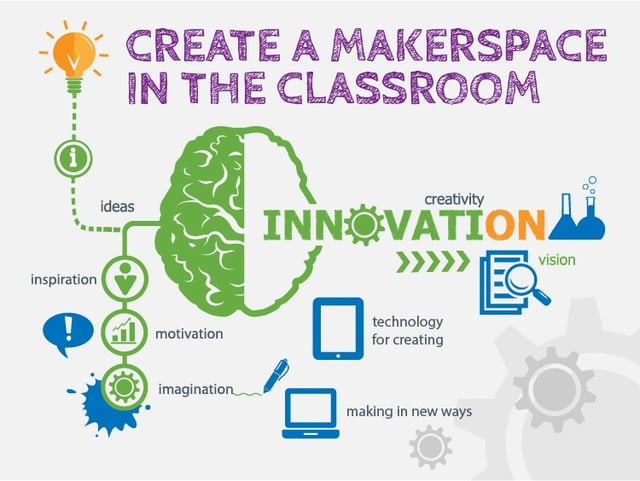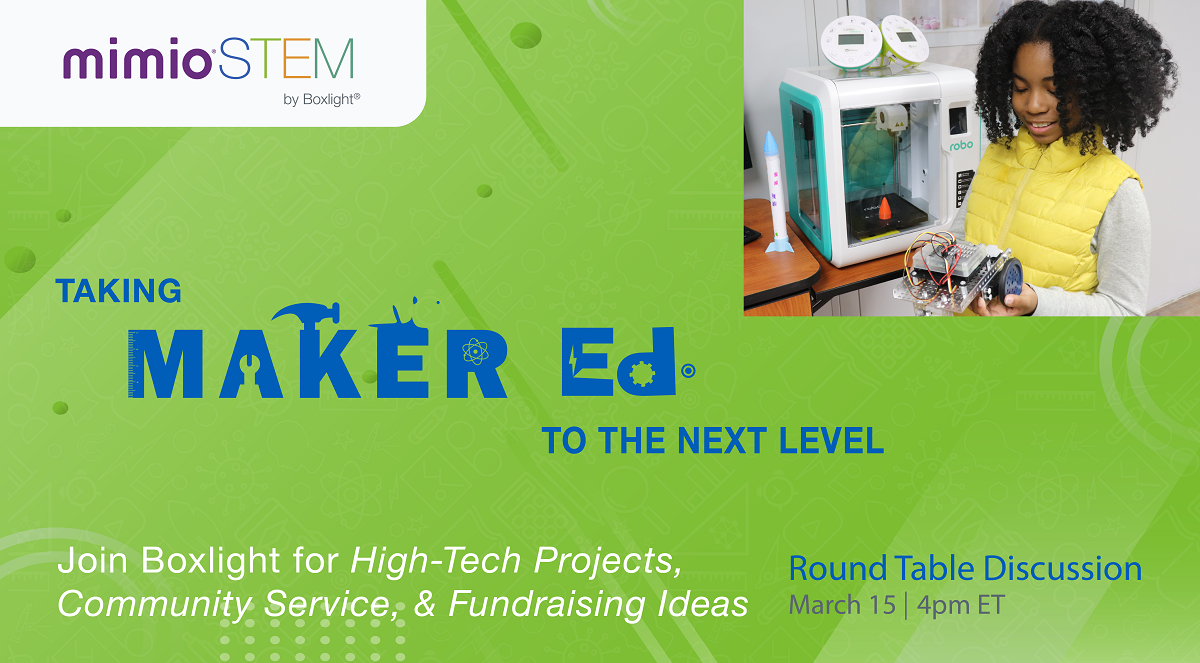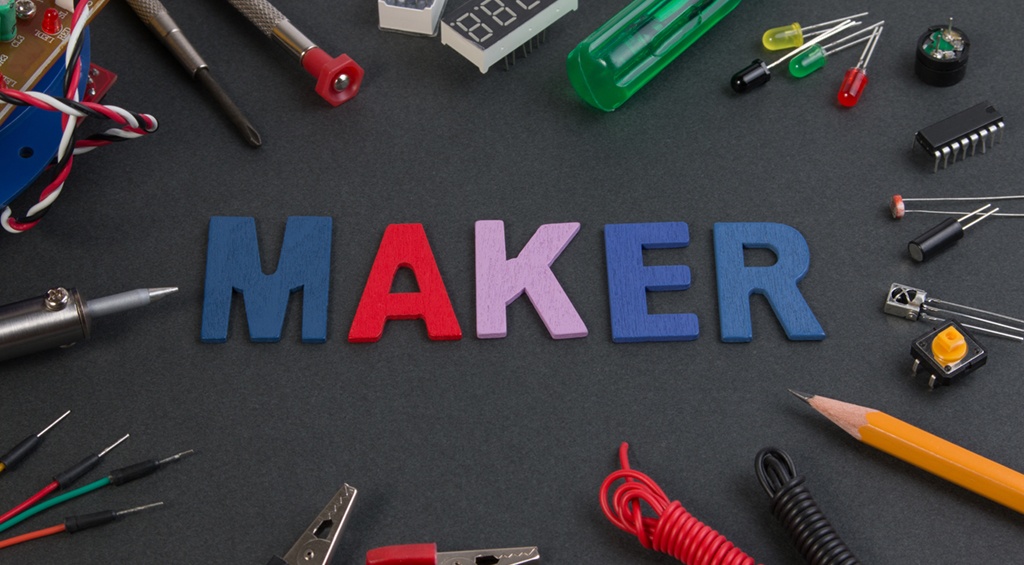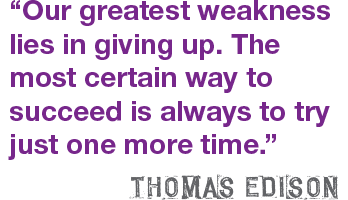The influence of STEM education on the maker movement is undeniable. The availability of constructive technology like 3D printers, robotics, new programming languages, and so on has made the implementation of maker education possible for more schools and districts. Why is the maker education movement on the rise?
Topics: The Maker Movement, STEM, Webinars, STEM education, Makerspace
Creating a makerspace in a school or classroom is a great idea for many reasons. In a well-run makerspace, engagement is high, critical thinking is taking place, and collaborative problem solving is occurring among students. What’s not to like?
But the prospect of getting a makerspace off the ground can be overwhelming. We are in the process of launching one in our school next year and have learned a few things along the way.
Topics: The Maker Movement, tips for teachers
Become a Makerspace Rock Star While Saving Time and Money
You are a progressive, cutting-edge classroom teacher who knows the benefits of project-based learning and how it incorporates both critical thinking skills and 21st century learning. You have been reading about a trending idea to meet the needs of today’s learners: a makerspace.
Topics: curriculum, The Maker Movement, tips fpr teachers
What Cardboard Taught Me About Motivation and Learning
A couple of years ago I came across a documentary-type video about a boy named Caine. The video, Caine’s Arcade, was simple enough, and the boy was engaging and adorable. The boy’s father had given him an opportunity that is sadly missing from many students’ lives.
The Opportunity Was Freedom
Caine’s dad allowed his son to learn freely, to create independently, and to foster his passion and curiosity. To summarize the video won’t do it justice, but here’s my attempt: Nine-year-old Caine uses his creativity and initiative to create an arcade in his dad’s shop over one summer. The arcade was made primarily out of cardboard. Caine created all types of arcade games, along with prizes to be purchased with tickets won from the games. His goal was to create an actual arcade to which people would come and spend money.
So what does this child, who lived in the city and made a building out of cardboard in his dad’s shop, teach us about motivation and learning? A great deal, actually!
Topics: curriculum, Games, The Maker Movement

America has always had a culture set on dreaming up possibilities and then taking action to make them happen. I believe that the amazing innovation we have seen in the United States (and, in some cases, don’t even know about yet) is due to the “maker” mentality. Because the art of making is inherent to the very fabric of our culture, it’s central to 21st learning.
Childhood has long been a time when young minds are allowed – indeed, encouraged – to play and “make.” It’s important to understand that allowing students to be makers opens the doors to both personalized and authentic learning.
The current Maker Movement in education puts greater emphasis on allowing students to imagine, envision, create, innovate, play, formatively learn, experiment, collaborate, share, and – most of all – dream of possibilities. Creating a classroom makerspace seems to be a natural progression in today’s schools.
Topics: Lessons, Activities, curriculum, The Maker Movement
The Maker Movement in Education: Creating Creativity in Your Students
Your student could be the next Thomas Edison!
No one will argue that children have a limited imagination. We all know that with the most basic of objects, children can create things to entertain themselves (and their parents) for hours.
Case in point: On a family vacation a few weeks ago, I watched my nieces and nephews construct a fort (it was really more like a small city) out of every item in the house. It took up the entire living room and was comprised of chairs, couches, sheets, and other miscellaneous items.
In its simplest form, this is how every “maker” gets his or her start. Seemingly random items become something “made,” which can provide hours of entertainment or years of practical use. As children grow older, they sometimes lose that creative urge. But today, there seems to be an increasing number of makers among our youth – enough to comprise a “movement.”What is this Maker Movement all about?
The Maker Movement can mean different things to different people, but essentially it refers to embracing the ability to create useful things from scratch. In the past, “making” technology or advanced products required knowledge and access – things only available to professionals. Today, however, the possibilities are endless. We have everything from your basic needle and thread to more advanced maker tools, like the Raspberry Pi, Arduino, and 3D printers. The Maker Movement is catching fire with students, and I believe we will see an explosion of products created and problems solved in the coming years.
Topics: The Maker Movement, Mindsets






